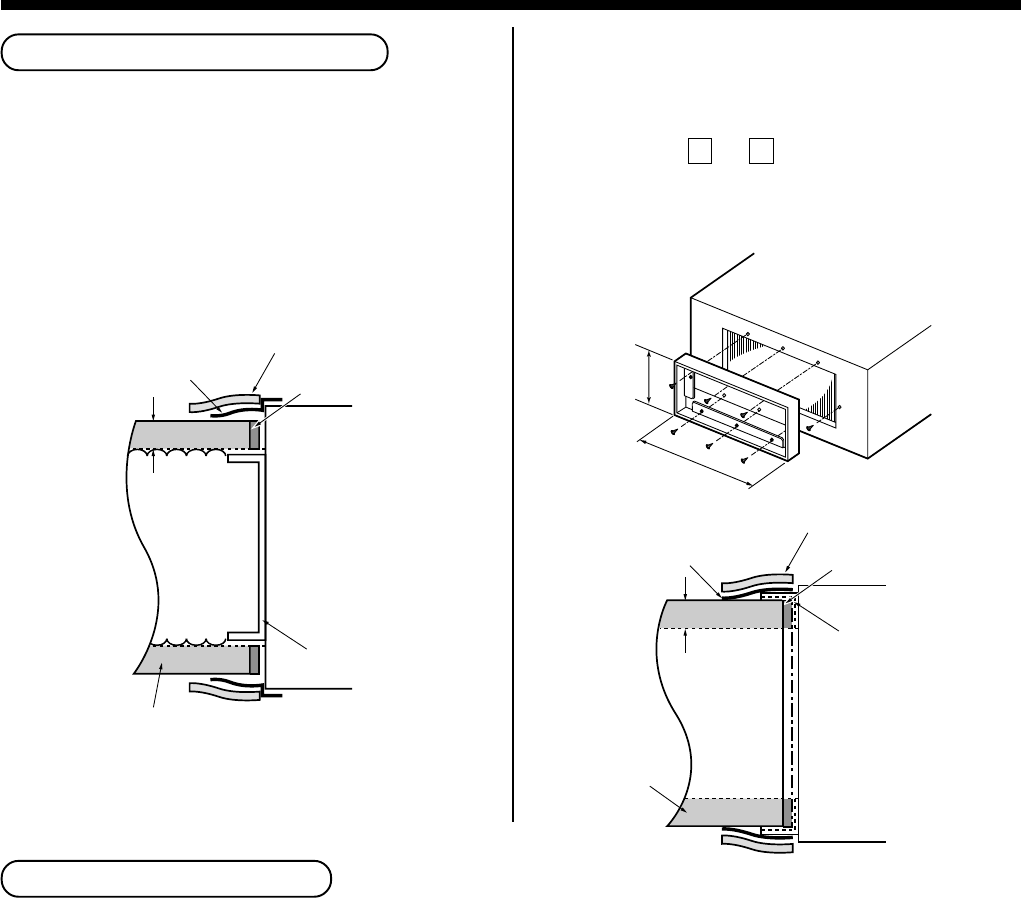
72
Connecting method of the duct
1. Supply air side
<Round duct>
1. Make the round duct according to inner dimension
of the flange
Use a glass wool board with inside/outside finishing
25mm-thickness and 24kg/m³-density.
2. Connect the flange and each type of duct. (Fig. 1)
Fig. 1
Fig. 2
Points at installation work
n General cautions
1. Considering installation places of indoor unit supply chamber, structure of the building and determine the duct
path.
2. In order to utilize the static pressure characteristics of the air supply in the indoor unit, design the duct branching
having the large size of the air supply chamber or setting distance to the first branch as long as possible
(Min. : 200mm or longer) so that an even air volume can be obtained.
Especially, when branching just after air supply of the indoor unit, air concentrates at the center part and is
difficult to flow to the ducts at both sides.
3. Connect each connecting section surely, and apply sufficient thermal insulation.
In this model of which the duct is branched in the ceiling, compared with the model for ordinary houses, the high
temperature generates on the periphery in the cooling time (Especially, at attic and etc.), temperature difference
increases between the supply air and outside of the duct, and dewing may occur.
Dewing on the surface of the thermal insulator covering the metal connecting section or leaking portion of the
cooled air may cause a trouble such as water drops.
4. Thermal insulation of screwing sections is necessary.
Prevent dewing by applying thermal insulation to 6 screws those fix the duct flange of the air supply chamber.
• For duct parts, the flexible branch duct (thermal insulation, 25mm or more thickness) is recommended.
• Adjust the duct length to 6m or less even for straight pipe, and avoid sharp bending (Air flow resistance is
large.) if bending.
<Square duct>
1. Using 6 screws, mount the flange to the supply air
port of the indoor unit. (Fig. 2)
2. Make the square duct according to inner dimension
of the flange A x B .
Use a glass wool board with inside/outside finishing
25mm-thickness and 24kg/m³-density.
3. Connect the flange and each type of duct. (Fig. 3)
Fig. 3
A
B
( )
Thermal insulator (50mm (w), 6mm (t))
Seal
Thermal insulator :
25mm (w), 6mm (t)
Aluminum tape
(50mm-width)
Square
duct board
(25mm)
25mm
End
Indoor unit
( )
Thermal insulator (50mm (w), 6mm (t))
Seal
Thermal insulator :
25mm (w), 6mm (t)
Aluminum tape
(50mm-width)
Round duct board
Thermal insulator
(25mm thickness, 24kg/m³ or equivalent)
25mm
End
Indoor unit


















